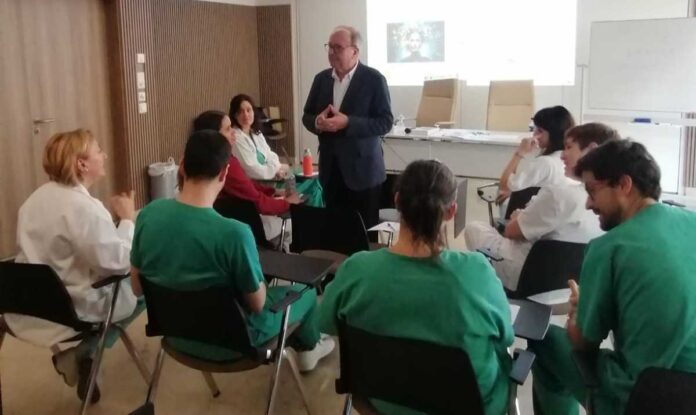
![]() Spanish
Spanish ![]() Dutch
Dutch ![]() French
French ![]() German
German ![]() Norwegian Bokmål
Norwegian Bokmål ![]() Polish
Polish ![]() Swedish
Swedish
According to the UN, education contributes to improving health, promoting gender equality, and reducing inequality.
The UN itself describes education as a key factor that “helps eradicate poverty and hunger, improves health, promotes gender equality, and reduces inequality. Ultimately, it shapes future generations, forging better citizens.”
With this in mind, Julio García Gómez, an expert and instructor in communication and talent management training at the Fundación Economía y Salud, and director of the Health Communication Diploma and Course at the institution, highlights the importance of communication in all educational processes within society as a fundamental pillar for personal development.
Contribution to Health Improvement
Health communication, within the broader scope of education, is a vital factor in connecting patients with healthcare professionals. It is essential for collaboration among professionals in various settings where they work, such as hospitals, primary care centers, clinics, and research classrooms. Health communication is indispensable for designing strategies that enhance the relationship between the medical sector and the community, contributing to improved global public health.
Each year, on January 24, the International Day of Education is observed, as proclaimed by the United Nations (UN) to raise global awareness about the importance of education in achieving the goals outlined in the 2030 Agenda for Sustainable Development. According to the UN, education plays a critical role in improving health.
Challenges of International Day of Education
Strengthening interpersonal communication for knowledge transmission.
Upholding the right to education.
Under the theme “Artificial Intelligence and Education: Preserving Human Autonomy in an Automated World”, which guides all UN actions during the commemoration, there is a need to emphasize the rational use of new technologies for more inclusive education. This involves ensuring access for all, reducing excessive reliance on screens and the internet, and fostering interpersonal communication to transmit knowledge effectively.
Education is a fundamental right for all people worldwide. Therefore, it is necessary to establish communication channels that act as conduits of knowledge across countries.
With UNESCO estimating that nearly 80 million children risk remaining out of school by 2030, efforts must be made to equip them with essential tools for daily life, such as communication skills that enable them to express themselves, master verbal language, and understand the power of words and conversation.
A basic right like education should bring people closer to information across all fields, ensuring technologies, including artificial intelligence, do not become obstacles due to a lack of training.
About Julio García Gómez Julio García Gómez is a health communication expert with the Fundación Casaverde and Fundación Economía y Salud. He has received international training in communication techniques for education from NAB in Atlanta, USA, and MIDEN in Cannes, France
![]() Spanish
Spanish ![]() Dutch
Dutch ![]() French
French ![]() German
German ![]() Norwegian Bokmål
Norwegian Bokmål ![]() Polish
Polish ![]() Swedish
Swedish











